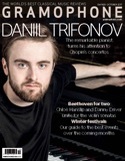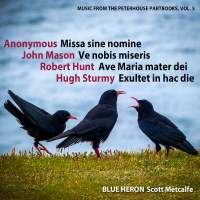Texte paru dans: / Appeared in: |
|
|
Outil de traduction (Très approximatif) |
|
|
Reviewer:
Fabrice Fitch
Blue Heron are a multivalent group. Here they sing with two or three voices to a part, using adult trebles for the top ones, as is customary in this repertory. Their tone and approach is more reminiscent of English ensembles than most mixed American choirs I can think of (more fullbodied than Pomerium, for example, or even some English groups one could name). As the final volume of a long-term project, it is right that this should count among the most polished, but I suspect that their sound may take some listeners by surprise. At full stretch there isn’t a weak link from top to bottom, and at their best (that is, usually) the trebles stand comparison with those of far better-known ensembles either side of the Atlantic: try the Mass that forms the centrepiece here.
By and large the series has
focused on music whose performance is only possible through Sandon’s
ministrations. Among the high points of previous instalments are three antiphons
by Hugh Aston (Vol 1), Nicholas Ludford’s Missa Regnum mundi and a Salve
regina by Richard Pygott (Vol 2). Those names will be familiar to aficionados of
this repertory, but here the focus is on figures who are either really obscure
or actually nameless. Don’t let that put you off: the Mass in particular is
superb. Whoever wrote it almost certainly knew Taverner’s Gloria tibi
Trinitas, for echoes of it abound, yet it is no slavish imitation. For this
piece alone the disc is worth owning. The confident rendition of Hugh Sturmy’s
Exultet in hac die sets the tone and the more extended Ve nobis
miseris by John Mason gives the male voices a chance to show off, but in the
Mass things get seriously impressive. I doubt whether I’ll be alone in thinking
this one of the discoveries of the year. |
|




